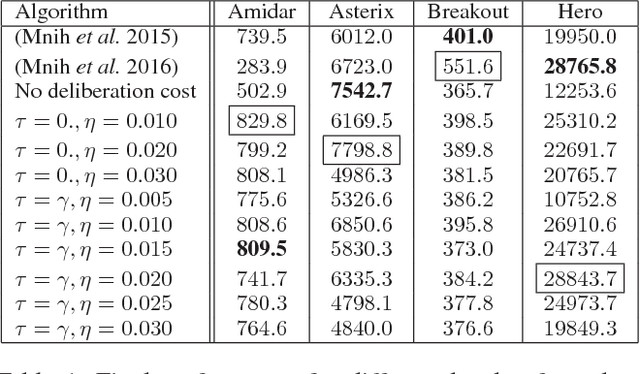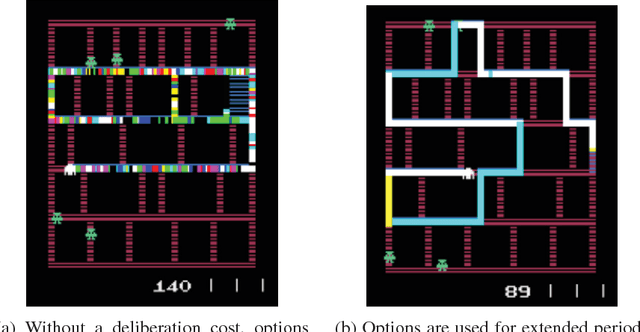When Waiting is not an Option : Learning Options with a Deliberation Cost
Paper and Code
Sep 14, 2017


Recent work has shown that temporally extended actions (options) can be learned fully end-to-end as opposed to being specified in advance. While the problem of "how" to learn options is increasingly well understood, the question of "what" good options should be has remained elusive. We formulate our answer to what "good" options should be in the bounded rationality framework (Simon, 1957) through the notion of deliberation cost. We then derive practical gradient-based learning algorithms to implement this objective. Our results in the Arcade Learning Environment (ALE) show increased performance and interpretability.
 Add to Chrome
Add to Chrome Add to Firefox
Add to Firefox Add to Edge
Add to Edge